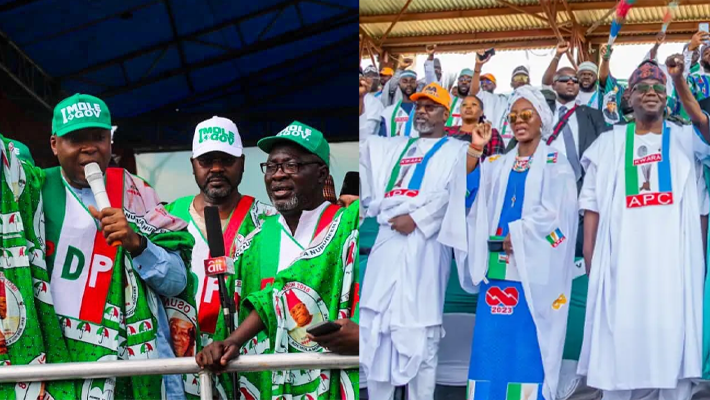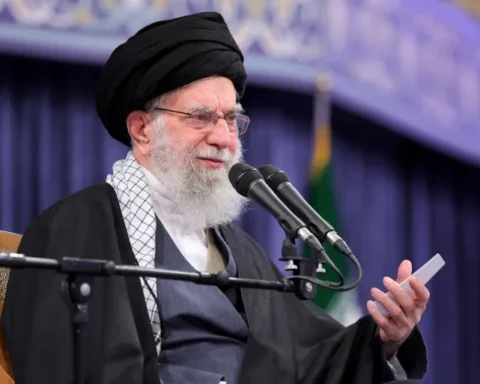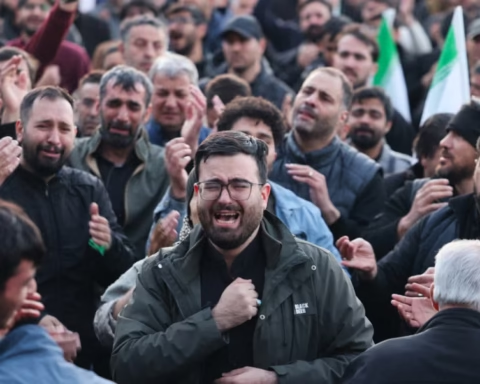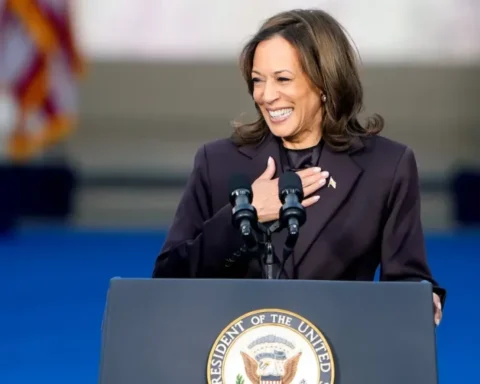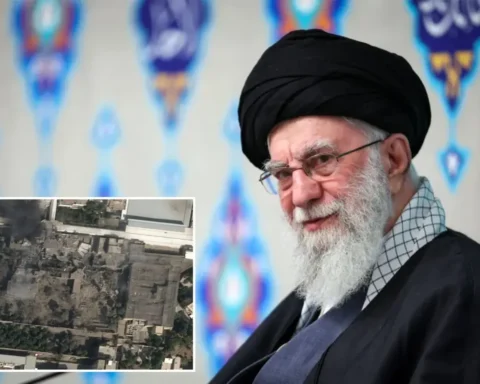A Canadian Federal Court has upheld a landmark immigration tribunal ruling that declared Nigeria’s major political parties the All Progressives Congress and the Peoples Democratic Party terrorist organisations, while refusing asylum to a former member, Douglas Egharevba, over his decade-long affiliation with both parties.
In a judgment delivered on June 17, 2025, Justice Phuong Ngo dismissed Mr Egharevba’s application for judicial review after Canada’s Immigration Appeal Division found him inadmissible under security provisions of the Immigration and Refugee Protection Act.
The Minister of Public Safety and Emergency Preparedness had argued that the PDP and the APC were deeply implicated in acts of political violence, subversion of democracy, and electoral bloodshed, inflicting harm and terror on Nigerians.
Mr Egharevba, who joined the PDP at its founding in 1999, left in 2007 when he defected to the APC, staying there until 2017. He claimed that his personal record was untainted by the violence and manipulation that plagued Nigerian politics, insisting he had never personally engaged in terrorism or subversion. But Justice Ngo was unconvinced, writing that “the conduct of individuals who are members of the PDP, including high-ranking officials, and those who committed political violence and intimidation on their behalf, is too widespread and persistent over too great a period of time to dissociate the leadership of the party from their actions.”
According to court filings, Mr Egharevba entered Canada in September 2017 and disclosed his political history in a Background Declaration Form. Under questioning by the Canada Border Services Agency in 2018, he confirmed his eight-year PDP membership before switching to the APC. Canadian immigration authorities flagged his affiliations, citing intelligence and international reports that linked both parties to electoral misconduct and politically motivated killings.
The IAD focused on the PDP’s record during the 2003 and 2004 polls as “sufficient and determinative” for his case, but the court acknowledged evidence that political violence was not unique to one party, reflecting a broader culture of malpractice in Nigeria’s political class.
In January 2019, an immigration officer declared Egharevba inadmissible under section 34 of the IRPA, covering terrorism and subversion of democracy. While the Immigration Division initially ruled in his favour in 2020, saying there was insufficient evidence to prove party leadership directly orchestrated killings or intended to undermine democracy, the minister appealed with new evidence. However, on March 25, 2024, the IAD overturned the decision, concluding that the PDP engaged in acts of subversion and terrorism, and that mere membership, regardless of personal involvement, triggered inadmissibility.
Justice Ngo’s ruling last month upheld that conclusion.
Central to the decision was the PDP’s violent record during the 2003 state elections and 2004 local government polls, when it controlled the federal government and most states during the tenure of former President Olusegun Obasanjo and Vice-President Atiku Abubakar. The IAD found, and the judge agreed, that PDP members and loyalists engaged in ballot stuffing, ballot box snatching, voter intimidation, and the killing of opposition supporters and candidates.
The party leadership, enjoying the benefits of such violence, took no action to stop it. Justice Ngo said this met Canada’s legal definition of subversion of a democratic process under paragraph 34(1)(b.1) of the IRPA, meaning “accomplishing change by illicit means or for improper purposes related to an organisation” — even without the use of force.
The court also reaffirmed Canada’s broad interpretation of “membership” in a proscribed organisation. Under paragraph 34(1)(f) of the IRPA, the government need not prove personal complicity or significant integration, acknowledging membership during violent periods was enough.
“An admission of membership in an organisation is sufficient… regardless of the nature, frequency, duration or degree of involvement,” Justice Ngo stated.
Mr Egharevba’s argument that violence was endemic across all Nigerian parties, and that it was unfair to call the PDP’s actions “subversion” when Nigeria’s elections could not be deemed democratic by Canadian standards, was dismissed as legally untenable. Justice Ngo wrote that even flawed Nigerian elections constitute a democratic process under Canadian law, and undermining them for political gain is subversion.
The ruling stands as one of the clearest pronouncements by a foreign court equating Nigeria’s ruling and former ruling parties with terrorist entities under international law. It reaffirms that party membership abroad can justify exclusion from Canada if the organisation is linked to terrorism or democratic subversion — even without a criminal record or evidence of personal violence.
Justice Ngo rejected Mr Egharevba’s request to reinstate the original 2020 decision in his favour, ruling that even if the IAD’s conclusion had been unreasonable, the case would have been sent back for reconsideration, not decided outright in his favour.
The dismissal leaves Mr Egharevba’s asylum claim effectively dead, with deportation proceedings expected to follow.
Follow us on all social media platforms @dailyquery for news and analyses around the globe.
